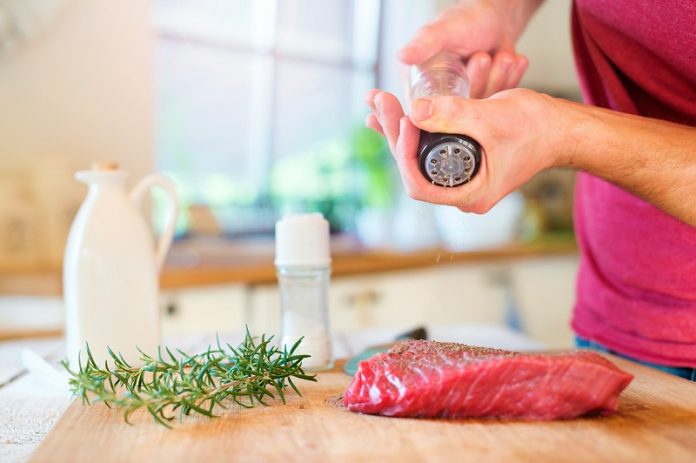
Recent research has highlighted the potential connection between diet and the risk of developing cancer.
While various factors contribute to cancer, such as genetics, environment, and lifestyle, what we eat can also play a significant role in our risk of developing this disease.
For example, studies have shown that consuming large amounts of red and processed meats may increase the risk of certain types of cancer, particularly colorectal cancer.
Similarly, excessive alcohol consumption has been linked to an increased risk of cancers, including breast, liver, and colorectal cancer.
On the other hand, some foods may help protect against cancer. Diets rich in fruits, vegetables, and whole grains have been associated with a lower risk of cancer.
These foods are packed with antioxidants and other nutrients that can help prevent cell damage and inflammation, both of which are known risk factors for cancer.
Additionally, maintaining a healthy weight through a balanced diet and regular exercise has been shown to reduce the risk of various cancers, including breast, colon, and prostate cancer.
A recent study by scientists from Tel Aviv University further explored the connection between diet and cancer risk, focusing on the consumption of red meat and dairy products.
The researchers investigated a sugar molecule called Neu5Gc, which is found in the meat of mammals like beef, pork, and lamb, as well as in dairy products.
Humans do not naturally produce Neu5Gc, but they develop antibodies against it after consuming meat and dairy, particularly from a young age.
Previous research has suggested that these anti-Neu5Gc antibodies can exacerbate cancer in animals, prompting the Tel Aviv team to explore whether a similar link exists in humans.
The study involved nearly 20,000 adults worldwide who reported their food intake over several days. The researchers measured their daily Neu5Gc intake from red meat and dairy products and took blood samples from 120 participants to assess their anti-Neu5Gc antibody levels.
The study found that men generally consumed more Neu5Gc than women, primarily from red meat, and had higher levels of anti-Neu5Gc antibodies.
Additionally, individuals who ate more red meat and dairy products had higher levels of these antibodies. Most importantly, the researchers discovered a strong correlation between high Neu5Gc intake from red meat and cheese and an increased risk of cancer.
The findings suggest that people who consume significant amounts of red meat and cheese are more likely to develop elevated levels of anti-Neu5Gc antibodies, which could increase their risk of cancer.
To better understand this relationship, the researchers developed a new tool called the Gcemic index. This index predicts which individuals are likely to develop high antibody levels based on their consumption of red meat and cheese.
By identifying the role of anti-Neu5Gc antibodies in cancer development, the study provides valuable insights that can help people make more informed dietary choices.
While further research is needed to fully understand this connection, the findings underscore the importance of a balanced diet in reducing cancer risk.
Overall, this research suggests that high consumption of red meat and dairy products may increase the risk of cancer. By being aware of this potential risk, individuals can make healthier food choices that may help lower their chances of developing this serious disease.
Experts generally recommend a diet rich in fruits, vegetables, whole grains, and lean proteins while limiting the intake of processed foods, red meat, and alcohol.
By adopting these dietary habits, people can not only reduce their cancer risk but also improve their overall health and well-being.
The research, led by Dr. Vered Padler-Karavani, was published in BMC Medicine and adds to the growing body of evidence linking diet to cancer risk.
As studies continue to explore these connections, individuals can take proactive steps to protect their health through thoughtful dietary choices.
If you care about cancer, please read studies about a new method to treat cancer effectively, and this low-dose, four-drug combo may block cancer spread.
For more information about cancer prevention, please see recent studies about nutrient in fish that can be a poison for cancer, and results showing this daily vitamin is critical to cancer prevention.





